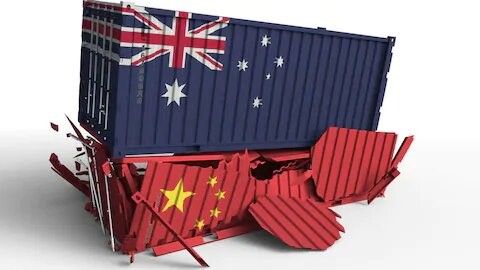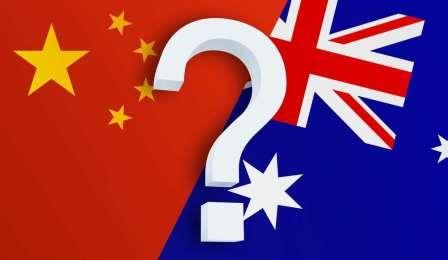Australia has set in motion three anti-dumping investigations into Chinese export and it includes aluminium, as per records from the Australian Anti-Dumping Commission, adding weight to Beijing’s claims that Canberra has played a lead role in abating up trade tensions between the two nations.

The Chinese government has maintained its investigation was thorough and reasonable, with Commerce Minister Zhong Shan pointing out early this week that Australia had launched 100 anti-dumping cases against China since diplomatic relations began in the 1970s, including three in 2020.
Australian Trade Minister Simon Birmingham said: “Trade remedy investigations were not about keeping a tally or doing things in a tit-for-tat way”.
The Australian Dumping Commission in February’20 kicked-off its first dumping investigation against China for the year, looking at the sales of aluminium micro-extrusions, which are used for domestic window fly screens and television aerials, made by Chinese companies Guangdong Jiangshen Aluminium and Guangdong Zhongya Aluminium.
Aluminium Shape makers, which trades as Alushapes and specialises in making the micro-extrusions, said in its application that: “Demand for the products in Australia had grown between 2015 and 2019, but sales volumes had been muted due to Chinese dumping.”
The application, which was supported by other aluminium manufacturers and claimed Alushapes had lost market share, did not accuse competitors from Malaysia, Vietnam and Thailand of dumping.
Another manufacturer, Capral Limited, made a separate request to extend the dumping measures against aluminium extrusions.
The products have long been the target of anti-dumping investigations in Australia and revolve around cheap prices that are allegedly enabled by Chinese government subsidies.
Birmingham has defended Australia's use of the anti-dumping system, but its frequent deployment against China has raised questions about whether the government should continue protecting some of its less competitive industries.
It is also unclear if Chinese prices are genuinely distorted or the result of an efficient economy.
Simon Lacey, Senior Lecturer in international trade at Australia’s University of Adelaide said: “Nobody knows if China is dumping because no one has looked at China’s prices.”
He added. “Everyone discards China’s price because they say it’s manipulated and distorted and so Australia picks a surrogate price usually from the economy with the highest costs because they want the biggest margin.”
“We also have to understand many Chinese companies operate on such a massive scale that they are crushing economies of scale that no other companies can really match, that allows them to be so efficient. However, that did not mean China was not engaged in dumping, as state-owned enterprises enjoy government help.”
Lacey also said: “There were reasons for keeping certain “inefficient” industries around, even though Australia’s Productivity Commission had found protectionism, which was mainly used to keep jobs, was unhelpful and imposed bigger costs on consumers and firms.”
“If you look purely at efficiencies, yes you would argue why to keep aluminium, steel or paper sector … but efficiency is not the be-all and end-all. There is the idea of systemic resilience in supply chains.”

Jim Minifie, from AlphaBeta strategy and economic advisory business, said disruptions to global supply chains caused by the coronavirus pandemic had caused governments to refocus on preserving strategic industries.
He said: “In addition, when global demand is down, importers and exporters alike can face the challenges of excess capacity, so trade tensions naturally intensify in downturns.”
“The bigger picture, regardless of any frustrations over individual industries, is the large and mutually beneficial trade and cultural relationship between Australia and China. There is a much bigger win-win story.”
source https://www.alcircle.com/news/australia-unfolds-anti-dumping-probes-into-chinese-aluminium-55930

Comments
Post a Comment